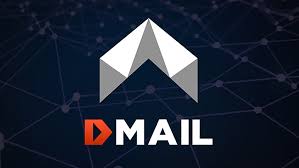Beyond Traditional Email: Why Dmail is the Future of Secure and Decentralized Messaging
 Unyime Ekanem
Unyime Ekanem
Introduction
Email has long been the foundation of digital communication, with billions of messages exchanged daily across the globe. However, traditional email systems are inherently flawed, plagued by security vulnerabilities, privacy concerns, and dependence on centralized service providers. As businesses and individuals seek more secure alternatives, Dmail Network emerges as a revolutionary Web3 email solution, leveraging blockchain technology to create a decentralized, private, and secure messaging system.
This article explores the limitations of traditional email, how Dmail addresses these challenges, and why decentralized messaging is the future of digital communication.
The Privacy and Security Issues of Traditional Email
1. Centralized Control and Data Exploitation
Most popular email providers—Gmail, Outlook, Yahoo—are controlled by centralized corporations. These companies have access to user emails, metadata, and personal information, which they often monetize through targeted advertising and data sales. This lack of privacy raises concerns about corporate surveillance and third-party access.
2. Susceptibility to Cyber Attacks
Email servers are prime targets for hackers due to their centralized nature. Major email providers have experienced large-scale data breaches, exposing millions of user accounts to cybercriminals. The risk of email hacking, phishing, and account takeovers remains a critical issue.
3. Spam and Phishing Epidemic
Traditional email systems struggle with filtering spam, phishing attempts, and malicious attachments. Despite sophisticated algorithms, cybercriminals continue to exploit vulnerabilities, deceiving users into revealing sensitive information.
4. Lack of True End-to-End Encryption
While some email providers offer encryption, most messages pass through multiple servers, where they can be intercepted. Many traditional encryption methods only protect emails during transit but not when stored on email servers, leaving them vulnerable to unauthorized access.
How Dmail Network Solves These Challenges
Dmail Network utilizes blockchain technology, decentralized identity (DID), and encryption protocols to offer a next-generation email solution. Here’s how it enhances security and privacy:
1. Decentralized Infrastructure
Dmail eliminates centralized servers by using a decentralized blockchain-based storage system. This prevents single points of failure, making it virtually impossible for hackers to compromise entire email networks. Users have complete control over their data, with no corporate oversight or third-party access.
2. End-to-End Encryption by Default
Unlike traditional email providers, Dmail encrypts messages at every stage of transmission and storage. Only the sender and recipient can decrypt messages, ensuring complete privacy.
3. Blockchain-Based Identity Verification
Dmail integrates decentralized identity (DID) authentication, preventing email spoofing, phishing, and impersonation attacks. This ensures that only verified users can send messages, reducing fraudulent activity.
4. Spam and Phishing Prevention
By leveraging smart contracts and blockchain verification, Dmail filters out spam and fraudulent emails before they reach a user’s inbox. Since emails are tied to verified blockchain identities, the risk of receiving deceptive messages is significantly reduced.
5. User-Owned Data and Digital Sovereignty
In Dmail’s ecosystem, users retain full ownership of their data. Unlike centralized email services that monetize user information, Dmail ensures that emails and attachments are stored securely on decentralized networks, accessible only to the intended parties.
The Benefits of Decentralized Messaging for Individuals and Enterprises
The shift to Web3 email solutions offers several advantages for both individuals and businesses:
For Individuals:
True Privacy: No third-party access to messages.
Security Against Cyber Threats: Resistance to hacking and phishing attempts.
Digital Identity Control: Blockchain authentication reduces impersonation and identity theft.
Ad-Free Experience: Unlike Gmail and Yahoo, there is no need for data monetization through ads.
For Enterprises:
Regulatory Compliance: Dmail’s decentralized approach ensures compliance with data privacy regulations such as GDPR, HIPAA, and CCPA.
Enhanced Security: Protects corporate communication from cyber espionage and insider threats.
Cost Savings: Eliminates reliance on expensive third-party email servers and security infrastructure.
Decentralized Workflow Automation: Smart contract integration enables secure automated transactions, approvals, and agreements within email communications.
Why Dmail is the Future of Email Communication
As blockchain adoption increases, decentralized email solutions like Dmail will become the standard for secure digital communication. Here’s why Dmail is poised to lead this transformation:
1. Web3 Integration and Cross-Chain Compatibility
Dmail is designed to work across multiple blockchain networks, enabling seamless integration with decentralized applications (dApps), DeFi platforms, and NFT marketplaces.
2. AI-Powered Security Enhancements
Dmail is incorporating AI-driven filtering mechanisms to further enhance security, reducing spam and detecting sophisticated cyber threats.
3. NFT-Based Email Authentication
Dmail is exploring NFT-based email verification, where users can link their NFT identity to their inbox, ensuring authenticity and ownership of communications.
4. The Role of $DMAIL Token in the Ecosystem
The native $DMAIL token enables staking, governance, premium features, and incentivized security measures, adding a layer of utility to the ecosystem.
Conclusion
The traditional email model is outdated, vulnerable, and insufficient for today’s privacy-conscious users. Dmail Network represents a paradigm shift in digital communication, offering a decentralized, secure, and user-owned messaging platform. By embracing Web3 principles, Dmail provides individuals and enterprises with a robust alternative to conventional email services, ensuring privacy, security, and data sovereignty.
As cyber threats evolve, businesses and individuals must adopt next-generation email solutions to safeguard their communications. Dmail Network is at the forefront of this transformation, paving the way for a new era of secure and decentralized messaging.
Subscribe to my newsletter
Read articles from Unyime Ekanem directly inside your inbox. Subscribe to the newsletter, and don't miss out.
Written by
